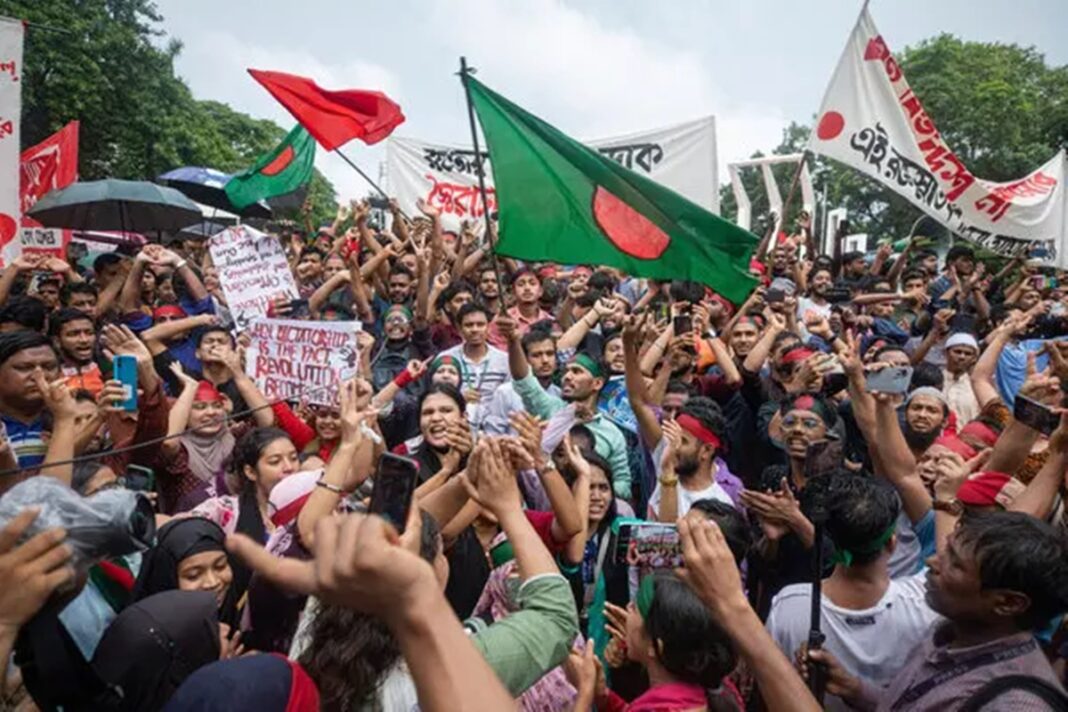Dhaka: Hopes for a more inclusive and democratic Bangladesh are under threat as the interim government moves forward with a draft Cyber Security Ordinance that critics argue echoes the repressive laws of previous administrations. The ordinance, approved in principle by the Advisory Council, has raised significant concerns among activists, journalists, and citizens, who fear a return to authoritarian practices.
A Chilling Reminder of the Past
The new ordinance comes after years of suppression under the Digital Security Act (DSA), which stifled dissent, restricted free speech, and targeted journalists, activists, and opposition members. The story of Khadijatul Kubra, a student whose online interview led to her prolonged imprisonment, remains a stark reminder of how such laws have been weaponized. Kubra’s case is just one of many where citizens have been silenced under the guise of national security and public order.
The interim government, led by Dr. Muhammad Yunus, had initially promised to champion democratic reforms. However, the draft Cyber Security Ordinance signals a continuation of the very practices that had eroded public trust in governance during Sheikh Hasina’s tenure.
Lack of Transparency Sparks Outrage
The approval process for the draft ordinance has drawn criticism for its lack of inclusivity and transparency. Stakeholders, including civil society organizations and digital rights advocates, were excluded from discussions. Instead, details of the ordinance were controversially shared on social media by a special adviser to the Ministry of Information and Technology before any official publication. This unorthodox approach has fueled concerns about accountability and the interim government’s commitment to democratic governance.
Concerns Over Centralized Authority
A particularly contentious provision in the draft ordinance is the authority granted to the Director General of the National Cyber Security Agency. Under Sections 8(1) and 8(2), the agency can unilaterally remove or block content deemed harmful to national security, public order, or religious values. Critics argue that this excessive centralization of power could lead to arbitrary enforcement, silencing dissent, and discrimination.
The ordinance also allows law enforcement to define and adjudicate matters of national solidarity and religious values. This mirrors the oppressive frameworks of previous governments, leaving little room for judicial oversight or citizen recourse.
Key Gaps in the Ordinance
The draft’s vague language and omissions further compound the problem. Key terms, such as cybercrimes, online harassment, and data protection, remain undefined, creating room for misinterpretation and abuse. Additionally, the draft fails to address crucial issues like service provider accountability, expert recognition criteria, and a comprehensive cybersecurity framework.
By conflating cybersecurity, cybercrime, and content moderation, the ordinance risks creating confusion and stifling legitimate online activities. This lack of coherence undermines its stated objectives and raises doubts about its effectiveness in addressing modern digital challenges.
Disconnect from Global Standards
The ordinance’s shortcomings are highlighted when compared to international standards. It fails to align with the Global Digital Compact (GDC) and the United Nations Convention against Cybercrime, both of which emphasize protecting digital rights while ensuring cybersecurity. By ignoring these frameworks, Bangladesh risks isolating itself from the global digital community and compromising its commitment to democratic values.
The Need for Inclusive Reforms
The interim government has a pivotal opportunity to demonstrate its commitment to democratic principles by revising the draft ordinance. Engaging diverse stakeholders, ensuring public consultation, and adhering to global best practices could pave the way for a more balanced and inclusive cybersecurity law.
Bangladesh stands at a crossroads. The decisions made today will determine whether the nation progresses toward a freer, more democratic society or reverts to the repressive practices of the past. The people of Bangladesh, who have long fought for their rights, deserve nothing less than a transparent and accountable approach to governance.






